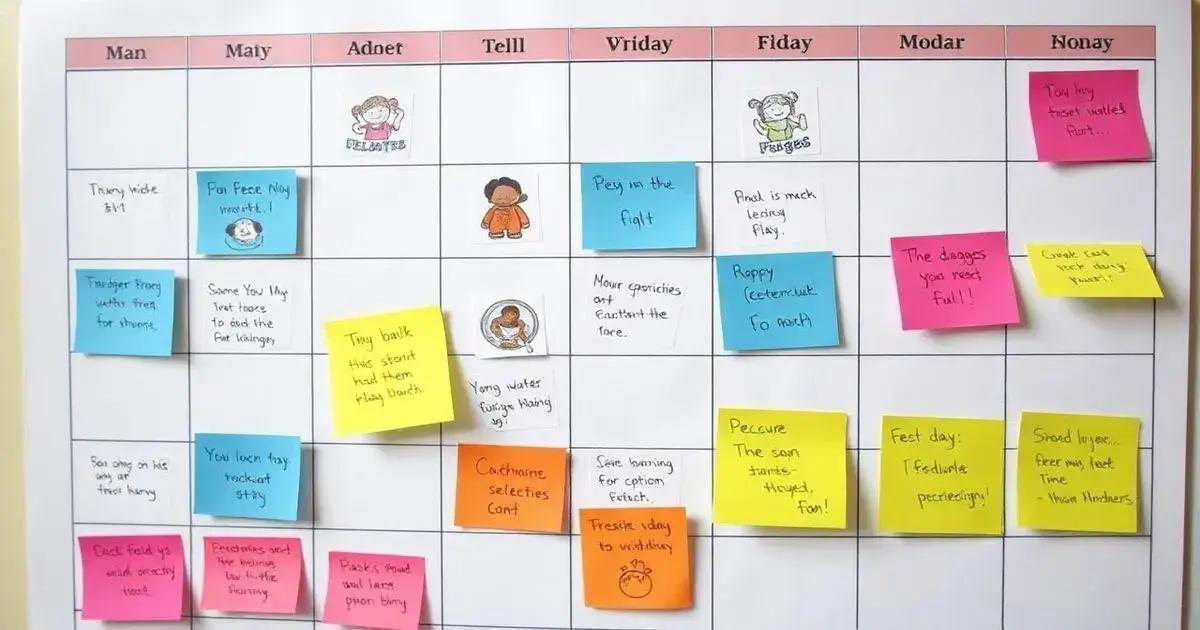The importance of including play and recreation in your routine lies in its numerous benefits, such as enhancing creativity, reducing stress, and improving overall well-being. By prioritizing recreational activities, setting clear goals, and involving others, individuals can create sustainable habits that lead to a more balanced and fulfilling life.
The importance of including play and recreation in your routine cannot be overstated. Engaging in leisure activities enhances not only your mood but also your overall productivity. In our fast-paced lives, we often forget to make time for fun. This article will explore the role of play in our daily schedules, discuss the numerous benefits, and provide practical tips for integrating recreational activities seamlessly into your life.
Understanding the Role of Play and Recreation

Understanding the Role of Play and Recreation is vital for maintaining a balanced life. In our busy lives, it’s easy to forget to make time for ourselves. Play and recreation allow us to unwind and recharge. This not only improves our physical health but also enhances our mental well-being.
Why Play Matters
Play isn’t just for kids; it offers numerous benefits to people of all ages. Engaging in play stimulates our creativity and encourages problem-solving skills. Whether it’s a board game, sports, or arts and crafts, play encourages us to think outside the box. It can even strengthen social bonds with friends and family.
The Connection Between Play and Mental Health
Recreation plays a crucial role in mental health. It can reduce anxiety and stress, helping individuals to feel more relaxed and focused. Participating in fun activities releases endorphins, which are natural mood lifters. As a result, make it a priority to include play in your daily routine for a happier mindset.
Physical Health Benefits
Incorporating recreation into your routine can enhance your physical health. Activities like dancing, jogging, or even playing tag with kids can improve cardiovascular health and increase endurance. Regular play helps maintain a healthy weight and boosts overall energy levels, making you feel more active and lively.
Play as a Learning Tool
Additionally, play serves as an effective learning tool. Children learn vital life skills such as teamwork, communication, and patience through play. Adults can also use play as a way to explore new interests, develop hobbies, and discover hidden talents.
Benefits of Incorporating Play into Your Daily Life

Benefits of Incorporating Play into Your Daily Life are plentiful and can significantly enhance your overall well-being. By making time for play, you not only enjoy yourself but also experience various positive outcomes.
Enhanced Creativity
Incorporating play into your daily life boosts creativity. Engaging in fun activities like art, dance, or games allows your mind to think freely. When your brain is relaxed and playful, you can come up with more creative solutions to problems.
Improved Social Connections
Playing with others fosters stronger relationships. Whether you’re playing a game with friends or participating in a sport, you build teamwork and communication skills. These interactions can lead to lasting friendships and a greater sense of community.
Better Stress Management
Including recreational activities in your routine helps manage stress. When you laugh and engage in enjoyable pastimes, your body reduces cortisol levels and promotes a sense of happiness. Regular play helps you cope with daily stressors more effectively.
Increased Physical Activity
Engaging in playful activities also keeps you physically active. Simple forms of play, like jumping rope or playing tag, provide a fun way to exercise. Regular movement helps maintain a healthy weight and enhances overall physical fitness.
Mood Boosting Effects
Finally, play can significantly improve your mood. Participating in enjoyable activities releases endorphins, the feel-good hormones. This natural high increases your happiness levels, making you feel more fulfilled and satisfied with life.
How to Find Time for Play and Fun Activities

How to Find Time for Play and Fun Activities is essential for creating a balanced life. It may seem challenging to fit play into a busy schedule, but with some planning, it’s possible.
Review Your Daily Schedule
Start by reviewing your daily schedule. Look for pockets of time that can be dedicated to play. This could be as simple as taking a break during lunch or setting aside 15 minutes after work.
Prioritize Play
Make play a priority. Just like you schedule meetings and chores, include recreational activities in your calendar. Treat these as important appointments that you should not miss.
Incorporate Family Time
Incorporate play into family time. Decide activities everyone enjoys, such as board games, outdoor activities, or movie nights. Combining family time with play strengthens bonds while ensuring everyone has fun.
Limit Screen Time
Consider reducing your screen time. Instead of spending hours on social media or binge-watching shows, use that time for activities that bring joy. Reading, crafting, or playing games are great alternatives.
Utilize Weekends and Holidays
Use weekends and holidays wisely. Plan fun outings or activities with friends. Taking advantage of these free days allows you to engage in recreational pursuits without the stress of daily responsibilities.
Start Small
Finally, start small. If you’re unsure where to begin, choose one fun activity a week. Gradually increase the frequency as you become accustomed to including play in your routine. Over time, this will lead to a more joyful and balanced life.
Tips for Making Recreation a Habit

Tips for Making Recreation a Habit can help you integrate play into your daily life more effectively. Creating habits makes it easier to enjoy recreational activities consistently.
Set Clear Goals
Start by setting clear goals for recreation. Decide what activities you want to include in your routine, whether it’s playing a sport, hiking, or crafting. Having specific goals helps you focus and gives you something to aim for.
Create a Schedule
Develop a schedule that includes your recreational time. Block out specific times in your calendar for play, just like you would for work or appointments. This ensures that you prioritize recreation and make it a regular part of your life.
Make it Social
Involve friends and family in your recreational activities. Participating with others can make the experience more fun and motivating. You’re less likely to skip out on activities if you know others are counting on you.
Start Small and Be Consistent
Start with small, manageable activities to avoid feeling overwhelmed. Begin with just 10-15 minutes of play a few times a week. Gradually increase the duration as it becomes a part of your routine. Consistency is key to building a habit.
Celebrate Your Wins
Take time to celebrate your achievements, no matter how small. Whether it’s completing a fun run or finishing a puzzle, recognizing your progress can motivate you to keep going. Positive reinforcement helps solidify your commitment to recreational activities.
Be Flexible
Finally, be flexible and adapt your plans as needed. Life can be unpredictable, and you may not always have the same opportunities for play. Allow yourself the freedom to change activities or reschedule as necessary while still prioritizing recreation.
Embracing Play and Recreation for a Balanced Life
Incorporating play and recreation into your routine is essential for enhancing both your mental and physical well-being. The benefits, from increased creativity and reduced stress to improved social connections, are significant.
By understanding the role of play, finding time for enjoyable activities, and establishing recreation as a habit, you can create a more fulfilling lifestyle. Remember to set clear goals, create a schedule, and involve others to make recreation a regular part of your life.
Ultimately, making time for fun is not just about leisure; it’s about enriching your life and boosting your overall happiness. So, take the step towards embracing play and recreation – your mind and body will thank you!
FAQ – Frequently Asked Questions about Play and Recreation
Why is play important for adults?
Play is essential for adults as it fosters creativity, reduces stress, and enhances overall well-being. It helps maintain a balanced lifestyle.
How can I incorporate more play into my busy schedule?
You can incorporate play by reviewing your schedule, setting clear goals for recreation, and prioritizing fun activities just like any other appointment.
What are the benefits of recreational activities?
Recreational activities provide numerous benefits, including improved mood, physical fitness, better social connections, and increased mental health.
How can I make play a habit?
To make play a habit, start small, be consistent, set clear goals, and celebrate your progress while remaining flexible to adapt your plans.
What types of activities can be considered play?
Play can include a wide range of activities such as sports, board games, arts and crafts, dancing, or any enjoyable leisure activity.
How does play impact mental health?
Engaging in play reduces anxiety and stress, boosts mood through the release of endorphins, and fosters relaxation and happiness.













